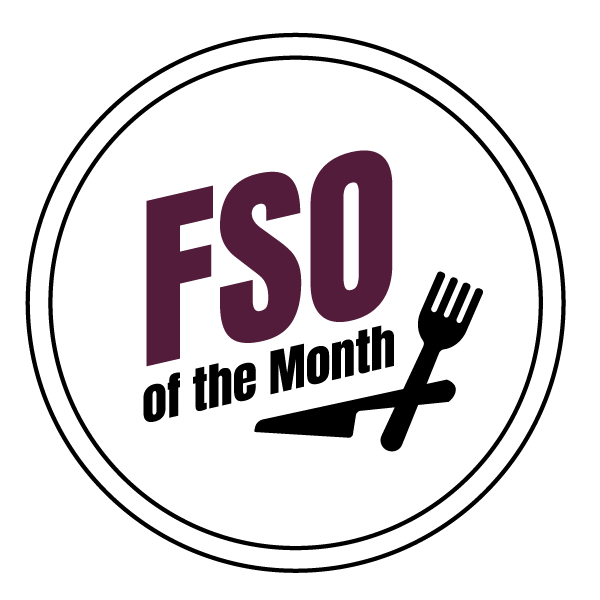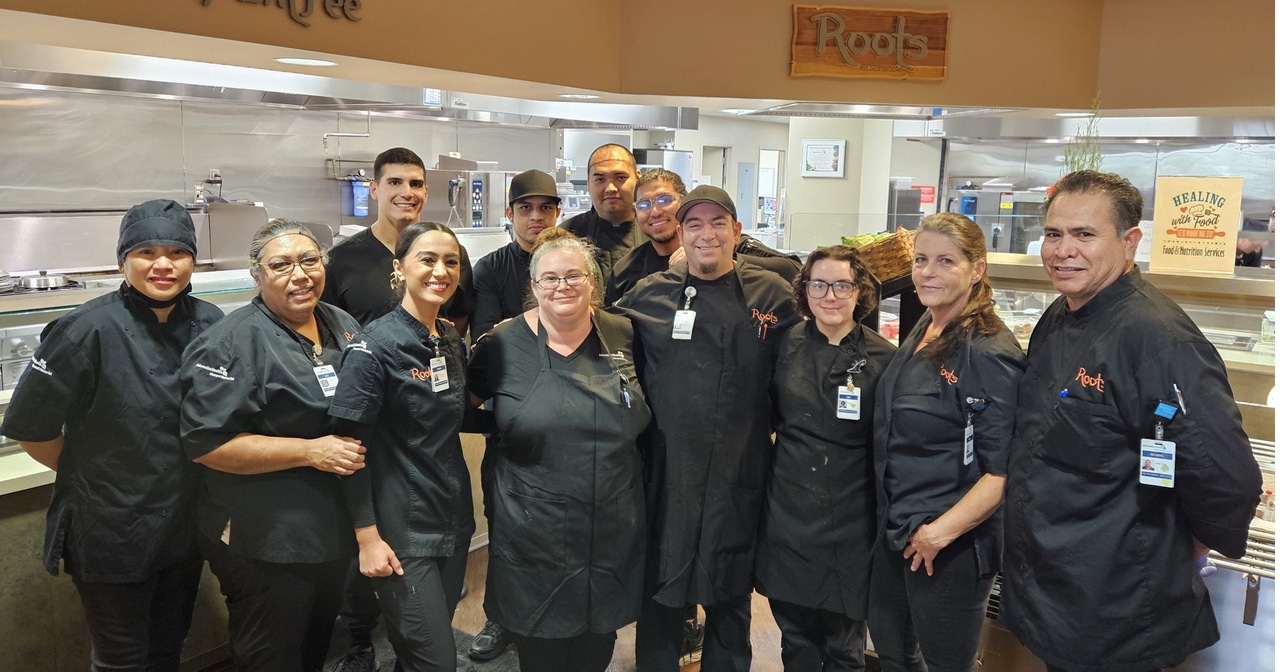
These innovative eateries are ones to watch.
Adventist Health Howard Memorial: Plant-forward, patient-forwardAdventist Health Howard Memorial: Plant-forward, patient-forward
The food service team at the Willits, California hospital relies on good communication to provide patients and visitors with a variety of plant-forward, farm-to-fork meals.
October 9, 2024

When patients, visitors, and staff look out the windows of Adventist Health Howard Memorial in Willits, California, they gaze upon a lovely garden stretched over five acres. And it provides far more than a nice view; this organic garden supplies much of the produce that hospital chefs use in their kitchens.
The Commonwealth Garden was spun up specifically to grow food for the hospital, and this partnership informs everything that Adventist Health Howard Memorial’s foodservice team creates at its Roots Restaurant: plant-forward, seasonal, nutrient-filled, dishes that promote community health.
“Food is so important both mentally and physically, especially in a healthcare setting,” says Food Service Director (FSD) Mark Maples, who manages Roots and is a registered dietitian. “Healthy food is important for your body, but you also want good food that makes you happy. We aim to provide both.”
It’s this approach that attracts not only those at Adventist Health Howard Memorial, but members of the small-town community who flock to the hospital specifically to enjoy Roots’ seasonal “farm-to-fork” menu designed around the garden harvest.
The Adventist community and Willits at large tend to treat Roots like they would any other local hotspot, and they talk about it with pride, Maples says.
“Roots makes some delicious food and at a really good price. It is a cafeteria style restaurant inside of a hospital. But don't let that keep you from trying the food… it’s the only one I go to without already being at the hospital for another reason. Can't recommend it enough,” reads one recent Yelp review.

Roots sourcing many of the ingredients for its meals from the hospital's garden. | Photo courtesy of Shelby White
Close ties between kitchen and garden
Roots’s menu does rival that of a commercial restaurant, featuring a daily variety of plant-forward dishes with both non-processed meat and vegetarian/vegan options: Thai tofu bowls, tomato basil soup, pumpkin muffins, beef curry with mixed vegetables, and Tuscan chicken salad. Garden-supplied produce is also a major focus of Roots’ chock-full salad bar.
In addition to community accolades, Roots also received a Blue Zones Project Approved designation last year. The initiative certifies restaurants that offer “smarter choices” in the spirit of the so-called five global Blue Zones, where a longevity study found that people reach age 100 at a rate ten times greater than that in the United States.
The garden-kitchen partnership has been a success, and it depends on close collaboration, Maples says. When he took the FSD position in 2022, he noticed a few areas for operational improvement—like overproduction of Asian greens that the kitchen couldn’t use fully.
“You could see these areas where a little more communication could make a big difference,” Maples says. “And that was what [the garden team] was expressing: asking if they could come to our monthly meetings. We said, sure, and why don’t you come meet with the cook who’s writing the menus, and….? It went from there.”
Now Maples’ team is tightly knit with garden supervisor Melissa Bouley and her staff. They inform each another’s planning on a long- and short-term basis. That begins with a big meeting at the start of the season to discuss what the garden team plans to plant, and what the kitchen staff would like for them to grow. Each day Bouley sends an email with the list of produce and volume of each item.
“It’s very friendly, and we’re going to share whatever we can,” says lead cook Geudiel Rodriquez. “We don’t hold anything back, and because we share everything, they can take whatever they need from that for their own work. The garden is a totally different thing from the kitchen, [and yet] it’s a [key part] of what we do each day.”
Communication is king
As goes the advice for just about any type of relationship, increased communication goes a long way. That’s Maples’ top tip for other operators looking to improve collaboration within their own team or across teams: Before you begin building systems or changing operations, just talk to each other.
“People have to be communicating properly and working together as a team first—otherwise, it doesn't matter how good your systems are, because they're not going to work,” he adds.
That said, don’t have a meeting just for a meeting’s sake, Maples says; cancel that standup this week if there’s not much to say. He also recommends avoiding micromanaging these relationships: Set up the necessary conversations, foster a culture where collaboration is expected and celebrated, and allow connections to blossom naturally.
“Teams build rapport and gain trust by talking,” Maples says. “From there, it’s like: Now that we are comfortable with each other and working as a team, imagine what we can accomplish.”
____________________________________________________________
Get to know Adventist Health Howard Memorial’s Mark Maples
See what’s in store for Maples’ operation, which was named FSD’s October Foodservice Operation of the Month.
Q: What is it that makes your team excel?
They are proud. Willits is a small town, and the town supports us. They know Roots puts out a tasty, healthier product—so they trust us and talk us up, which gives our people great pride.
It’s a culture that helps a lot. When people have pride, it’s so much easier for them to be motivated to put out good product. All our staff here at Howard want to make sure that the patients are eating the best-tasting meal they can, receiving the best customer service, and getting the healthiest food. It's important for them because of that pride they take in their work.

Mark Maples. | Photo courtesy of Maureen Jennison
Q: What are your goals for the operation in the coming year?
Our goals always involve improving, because no matter how good something is, you can always improve. Pertaining to the garden, we have meetings coming up in the next month or two to start establishing growing plans for next year. We don't necessarily have a specific volume goal like I set the year before—because coming out of peak COVID, we thought, ‘Hey, let's increase our volume as we open back up to the public to try and get people coming in here.’
Now, we have so many people coming in. They treat it as actual local restaurant, rather than a hospital cafeteria. So instead of a volume goal we’re focusing on increasing our quality and varying our options for customers. We also plan to keep educating our staff, as we want them to have tools and skills not only for here but also in case they ever leave here. We love retention of course, but you also don’t want to put a cap on anyone. Training here doesn’t just benefit the department; it also benefits the individual.
About the Author
You May Also Like


.jpg?width=300&auto=webp&quality=80&disable=upscale)

